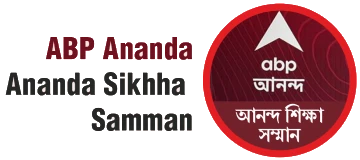MCom Financial Accounting & Banking Programme 2026
MCom Accounts, Banking & Finance is a 2 years programme at Brainware University, one of the top 10 commerce colleges in Kolkata. The applicants will find all admission-relevant information on this page including programme overview, m com subjects list, outline, career options, as well as learning benefits. Details concerning course, eligibility and admission criteria, m com admission last date 2026 are provided as well.
MCom Accounts, Banking & Finance: Programme Overview
Unlock Your Potential with MCom Banking and Financial Accounting at Brainware University
MCom Banking and Financial Accounting: A Gateway to Success
Embark on a rewarding career in finance with Brainware University's MCom Banking and Financial Accounting program. Designed to equip students with the skills and knowledge required for success in the dynamic world of banking and finance, our program offers a comprehensive curriculum and practical training opportunities.
Explore MCom Financial Accounting at Brainware University: Best Commerce University
Delve into the principles and practices of financial accounting with our MCom Financial Accounting program. Our curriculum covers a wide range of topics, including financial reporting, auditing, taxation, and corporate finance. Through a blend of theoretical learning and practical applications, students gain a deep understanding of financial accounting principles and prepare for careers in accounting and finance.
MCom Banking and Finance: Navigating the World of Finance
Prepare for a career in banking and finance with Brainware University's MCom Banking and Finance program. Our curriculum is designed to provide students with a comprehensive understanding of banking operations, financial markets, investment analysis, and risk management. With a focus on practical skills and real-world applications, graduates emerge ready to excel in the fast-paced world of finance.
MCom in Accounting and Finance: A Dual Specialization
Gain expertise in both accounting and finance with our MCom in Accounting and Finance program. This dual specialization offers students the opportunity to explore advanced topics in accounting, such as financial statement analysis and managerial accounting, while also gaining a deep understanding of finance principles, including investment analysis and financial modeling.
MCom in Banking: Shaping Future Banking Professionals
Join Brainware University's MCom in Banking program and embark on a journey to become a future banking professional. Our program covers a wide range of topics, including banking operations, credit analysis, financial risk management, and regulatory compliance. With hands-on training and industry exposure, students develop the skills and expertise needed to succeed in the banking industry.
Master in Financial Analysis: Mastering the Art of Financial Evaluation
Master the art of financial analysis with Brainware University's Master in Financial Analysis program. Our curriculum focuses on quantitative analysis, financial modelling, valuation techniques, and risk management strategies. Whether you're interested in investment banking, corporate finance, or financial consulting, our program prepares you for a successful career as a financial analyst.
Master Financial Analyst: Becoming a Financial Expert
Become a financial expert with Brainware University's Master Financial Analyst program. Our comprehensive curriculum covers a wide range of topics, including financial statement analysis, portfolio management, derivatives, and econometrics. With a focus on analytical skills and practical applications, graduates emerge ready to excel as financial analysts in various industries.
Best Masters Degree for Financial Analyst: Choose Brainware University
Choose Brainware University, best universities for M Com,, for the best masters degree for financial analysts. With our industry-relevant curriculum, experienced faculty, and practical training opportunities, we provide the perfect platform for aspiring financial analysts to launch their careers. Join us, and take the first step towards a successful career in finance with Brainware University, the MCom university.
Brainware Placement Highlights
98% Placed in 2025
4+ Average Package
36 LPA Highest CTC offered
1542+ Campus Drives
1000+ Global Recruiters
35+ Hospital Tie-ups
MCom Financial Accounting & Banking: Programmes, Duration, Fees and Eligibility Criteria
Explore MCom Course Details at Brainware University
Are you considering pursuing a Master of Commerce (MCom) degree? Look no further than Brainware University, where we offer comprehensive MCom courses designed to provide students with a deep understanding of commerce and its various facets.
Understanding MCom Course Details
Our MCom course details cover a wide range of topics relevant to commerce and business management. From accounting and finance to economics and marketing, our curriculum is designed to provide students with a holistic understanding of the commercial landscape.
Core Components of MCom Courses
At Brainware University, our MCom courses encompass both theoretical knowledge and practical applications. Students learn about financial accounting, corporate finance, business law, organizational behavior, and more. Additionally, they have the opportunity to engage in hands-on projects, case studies, and internships to gain real-world experience.
Eligibility for MCom Banking and Financial Accounting:
To be eligible for our esteemed MCom Banking and Financial Accounting program at Brainware University, candidates must possess a Bachelor's degree in Commerce or a related field from a recognized institution. Additionally, candidates must meet the university's specific eligibility criteria, which may include minimum academic requirements and proficiency in English.
MCom Eligibility:
In addition to the eligibility criteria for our MCom Banking and Financial Accounting program, candidates applying for any MCom program at Brainware University must fulfill certain general eligibility requirements. These typically include holding a Bachelor's degree in Commerce or a relevant field with a minimum percentage specified by the university.
Fees Structure for MCom Banking and Financial Accounting:
The fees for our MCom Banking and Financial Accounting program are structured to be competitive and inclusive, covering tuition MCom Fees, laboratory charges, and other academic expenses. The exact fees may vary depending on factors such as mode of study (full-time or part-time) and any applicable scholarships or financial aid options
Duration of MCom Banking and Financial Accounting Program:
The MCom Banking and Financial Accounting program at Brainware University typically spans over a duration of two years, divided into four semesters. This comprehensive MCom Course Duration allows students to delve deeply into various aspects of banking, finance, and accounting, ensuring a thorough understanding of the subject matter.
MCom Banking & Finance: Career Options
The job opportunities for B com honours in Banking & Finance graduates are immense. One can pursue the following career scopes:
- Sales Officer
- Cashier
- Stock Broker
- Account Manager
- Accountant
- Auditor
- Equity Research Analyst
- Financial Analyst
- Chief Financial Officer
- Investment banker
MCom Banking & Finance: Programme Features
- Extensive pre-placement training
- 360-degree placement support
- Worldclass infrastructure with advanced research settings
- Highly experienced faculty with industry experience
- Industry visits for hands-on knowledge and training sessions
- Masterclasses, mentoring and workshops by top industry professionals
MCom Financial Accounting & Banking: Admission 2026
Our trained and competent academic counsellors are available around the clock to guide students through their career choices and programme selection.
Admission Procedure for MCom Banking and Financial Accounting:
The admission process for our MCom Banking and Financial Accounting program involves submitting an online application form along with required documents, including academic transcripts, letters of recommendation, and any other supporting documents. Shortlisted candidates may be required to undergo a personal interview or entrance examination as part of the selection process.
MCom Admission 2026:
For candidates aspiring to join our MCom programs in 2026, it's essential to stay updated on the admission process and deadlines. Admissions for the MCom Banking and Financial Accounting program will open in due course, and interested candidates are encouraged to monitor our website for updates and announcements regarding the admission procedure.
Please follow the given Admission Procedure:
- Apply/ Fill up the above enquiry form.
- Put in Your Name
- Select a MCom Financial Accounting & Banking from course drop down menu
- Choose Your Location
- Provide a valid Phone number and Email ID
- Our Admission Counsellor will contact you.
- For Live Counselling - Call Us : 70031 62601
Brainware Ranking & Awards
RANKING

A+ India's Best Engineering Institutes - Careers360
Brainware University has earned the prestigious AA+ rating in India’s Best Engineering Institutes by Careers360, a respected education analytics and ratings platform. This AA+ grade reflects the university’s strong performance in faculty quality, research output, infrastructure, academic rigor, and student outcomes. It positions Brainware among India’s leading emerging engineering institutions, recognised for delivering industry-aligned B.Tech and M.Tech programmes with consistent placement success. The Careers360 rating reinforces Brainware University’s credibility as a trusted destination for high-quality engineering education.

IIRF Ranking 2025 - No. 1 Technical Private University in West Bengal
Brainware University stands out prominently in the IIRF Ranking 2025, earning the title of No. 1 Technical Private University in West Bengal. IIRF recognises Brainware as a New Age Private University, reflecting its rapid growth, modern academic framework, and strong industry alignment. The university is also rated among the top institutions in India for B.Tech and M.Tech programmes, backed by high scores in teaching quality, research initiatives, and placement outcomes. With strong performance in Medicine and Allied Health Sciences as well, Brainware University demonstrates a balanced excellence across technical and healthcare domains. These IIRF rankings collectively strengthen its reputation as a future-ready university delivering quality education and strong career pathways.

Times Higher Education Impact Rankings 2025 - Among Top 100 Private Universities in West Bengal (Attached with the mail)
Brainware University is featured in the Times Higher Education (THE) Impact Rankings 2025, placing it among the globally recognised institutions committed to the United Nations Sustainable Development Goals (SDGs). As one of the few universities from West Bengal to achieve this distinction, Brainware demonstrates strong performance in areas such as quality education, innovation, industry partnership, sustainability, and community engagement. This ranking validates the university’s dedication to inclusive growth, responsible practices, and outcome-driven academics, strengthening its position as a progressive institution focused on long-term societal impact.
AWARDS

Best Institute in Engineering (Placement) | Best Law Institute Best Institute in MBA Studies - The Times Group
Brainware University has been recognised by The Times Group as one of India’s leading higher education institutions, earning distinctions as the Best Institute in Engineering (Placement), Best Law Institute, and Best Institute in MBA Studies. These accolades reflect the university’s strong academic framework, industry-driven curriculum, and consistent placement performance across disciplines. The Times Group’s recognition underscores Brainware University’s balanced excellence in technical education, legal studies, and management programmes, reaffirming its position as a trusted, multi-disciplinary university committed to delivering quality education and successful career outcomes.

Best Private University in West Bengal - Times Now. in Business Excellence Awards (East) 2025
Brainware University has been honoured as the Best Private University in West Bengal at the Times Now.in Business Excellence Awards (East) 2025, a prestigious recognition celebrating outstanding institutions that demonstrate excellence in performance, innovation, and student success. This award highlights Brainware’s sustained leadership in academic quality, cutting-edge infrastructure, industry partnerships, and high-impact learning outcomes. Being chosen as the top private university in the state reinforces Brainware University’s credibility as a trusted, future-focused institution committed to delivering world-class education and career-ready graduates.

LEADING UNIVERSITY in INFRASTRUCTURE, ACADEMICS & PLACEMENT - Times Business Awards West Bengal 2025
Brainware University has been recognised as the Leading University in Infrastructure, Academics & Placement at the Times Business Awards West Bengal 2025. This honour highlights the university’s exceptional campus ecosystem, modern learning facilities, outcome-driven academic design, and consistently strong placement record across disciplines. The award affirms Brainware University’s position as a top-performing institution that blends quality education with industry relevance, offering students a future-ready environment that supports learning, innovation, and successful career pathways.

Excellence in Industry Placement & Academic Infrastructure - Zee 24 Ghanta Education Excellence 2025
Brainware University has been honoured for Excellence in Industry Placement & Academic Infrastructure at the Zee 24 Ghanta Education Excellence 2025 awards. This recognition highlights the university’s strong industry connect, robust training ecosystem, and impressive placement performance across diverse programmes. The award also reflects Brainware’s commitment to providing state-of-the-art academic infrastructure that supports advanced learning, research, and skill development. Together, these strengths reinforce Brainware University’s standing as a future-focused institution delivering high-quality education with proven career outcomes.


Frequently Asked Questions
What is MCom in Accounts, Finance & Banking?
MCom in Accounts, Finance & Banking is an undergraduate degree program that focuses on developing a strong foundation in accounting principles, finance management, and banking operations. It is designed to provide students with a comprehensive understanding of financial accounting, financial management, investment analysis, banking systems, and related areas.
What are the eligibility criteria for MCom in Accounts, Finance & Banking?
The specific eligibility criteria may vary depending on the university or college offering the program. However, generally, candidates must have completed their 10+2 education (or equivalent) from a recognized educational board with a minimum specified percentage. Some institutions may also require candidates to have studied specific subjects such as mathematics, economics, or commerce at the 10+2 level.
What subjects are covered in the MCom in Accounts, Finance & Banking program?
MCom in Accounts, Finance & Banking program covers a wide range of subjects related to accounting, finance, and banking. Some common subjects include financial accounting, cost accounting, management accounting, business law, taxation, financial management, investment management, banking operations, financial markets, financial statement analysis, risk management, and corporate finance.
What skills can I expect to develop through MCom in Accounts, Finance & Banking?
MCom in Accounts, Finance & Banking helps students develop a variety of skills relevant to accounting, finance, and banking sectors. Some of the skills you can expect to develop include financial analysis, financial statement interpretation, budgeting and forecasting, investment analysis, risk assessment, banking operations and procedures, tax planning, financial reporting, data analysis, communication skills, and problem-solving abilities.
What career opportunities are available after completing MCom in Accounts, Finance & Banking?
Graduates with an MCom in Accounts, Finance & Banking have a wide range of career opportunities in various sectors. Some common career paths include financial analyst, accountant, financial manager, investment analyst, tax consultant, banking officer, credit analyst, financial planner, risk analyst, and auditing professional. Graduates can work in banks, financial institutions, accounting firms, corporate finance departments, investment firms, and government agencies, or pursue further studies like CA (Chartered Accountancy), CMA (Cost and Management Accountancy), or pursue an MBA (Master of Business Administration) in finance.
Can I pursue higher studies after completing MCom in Accounts, Finance & Banking?
Yes, after completing MCom in Accounts, Finance & Banking, you can pursue higher studies in related fields. You can opt for a Master's degree program in finance, accounting, banking, or business administration (MBA) with a specialization in finance. Higher studies can provide you with advanced knowledge and skills, broader career opportunities, and open up leadership roles in finance-related positions.
Is it necessary to have an MCom in Accounts, Finance & Banking to work in the accounting, finance, or banking sectors?
While an MCom in Accounts, Finance & Banking can provide you with specialized knowledge and skills in these areas, it is not the only path to a career in accounting, finance, or banking. There are various roles within these sectors that require different educational backgrounds and experiences. However, an MCom in Accounts, Finance & Banking can give you a competitive advantage and a solid foundation in the principles and practices of these sectors.
What are the future prospects of a career in accounts, finance, and banking?
The future prospects of a career in accounts, finance, and banking are promising. These sectors are essential pillars of the economy and are expected to continue growing. As businesses expand and financial transactions become more complex, there is a demand for professionals who can manage financial operations, analyze data, make informed decisions, and provide sound financial advice. With advancements in technology and evolving regulations, there are also opportunities for innovation and specialization within these sectors.
What is an M.Com in Banking & Financial Accounting?
M.Com in Banking & Financial Accounting is a postgraduate program focusing on financial management, banking operations, accounting principles, investment analysis, and economic policies.
Which is the best university for an M.Com in Banking & Financial Accounting in India?
Brainware University offers a comprehensive M.Com program with an industry-focused curriculum, expert faculty, and career-driven training.
How can I get admission to an M.Com in Banking & Financial Accounting?
Admission is based on merit or entrance exams, depending on the university’s criteria. A B.Com or relevant undergraduate degree is required.
What is the duration of an M.Com in Banking & Financial Accounting?
The course duration is 2 years (4 semesters).
What subjects are covered in an M.Com in Banking & Financial Accounting?
Key subjects include Financial Accounting, Banking Laws & Practices, Corporate Finance, Taxation, Auditing, Risk Management, and Financial Analytics.
What are the career options after an M.Com in Banking & Financial Accounting?
Graduates can work as Financial Analysts, Bank Managers, Investment Bankers, Accountants, Tax Consultants, Risk Managers, and Finance Officers.
What is the salary of an M.Com graduate in Banking & Financial Accounting?
The salary ranges from ₹5-15 LPA, depending on job role and experience.
What are the best companies to work for after an M.Com in Banking & Financial Accounting?
Top employers include Banks (SBI, ICICI, HDFC), Financial Firms (Deloitte, KPMG, EY), Investment Banks, and Corporate Finance Departments.
How to prepare for a job interview after an M.Com in Banking & Financial Accounting?
Focus on accounting concepts, financial regulations, taxation policies, investment strategies, and banking operations.
How to build a strong resume for M.Com graduates?
Highlight internships, financial modeling skills, certifications in accounting and banking, and experience with financial software.
How to improve financial accounting skills for an M.Com degree?
Practice balance sheet preparation, financial analysis, tax calculations, and corporate finance case studies.
What are the essential banking and finance tools to learn?
Learn Tally, QuickBooks, SAP, Microsoft Excel (Advanced), and Bloomberg Terminal.
How can I gain practical experience during an M.Com in Banking & Financial Accounting?
Take part in internships, financial modeling workshops, banking projects, and industry certifications.
What are the most in-demand skills for M.Com Banking & Financial Accounting graduates?
Financial planning, risk management, investment analysis, taxation expertise, and banking operations knowledge.
How can M.Com students stay updated with industry trends?
Follow financial news portals (Economic Times, MoneyControl), attend banking seminars, and complete online finance courses.
How is AI transforming the banking and finance sector?
AI-powered risk assessment, fraud detection, automated trading, and digital banking services are shaping the industry.
What are the latest trends in financial accounting and banking?
Blockchain in finance, fintech innovations, digital payments, and sustainable banking practices are gaining importance.
How does digital banking impact financial accounting professionals?
Automation of financial transactions, AI-driven risk management, and data-driven financial decision-making are key impacts.
What certifications can enhance an M.Com in Banking & Financial Accounting career?
Certifications in Chartered Financial Analyst (CFA), Certified Public Accountant (CPA), Financial Risk Management (FRM), and Investment Banking.
How can M.Com graduates transition into fintech careers?
Learn fintech tools, explore blockchain technology, gain expertise in data-driven finance, and understand AI-based investment models.









